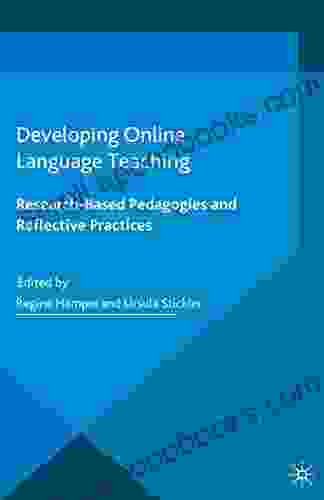Embracing Innovation in Language Learning: Research-Based Pedagogies and Reflective Practices

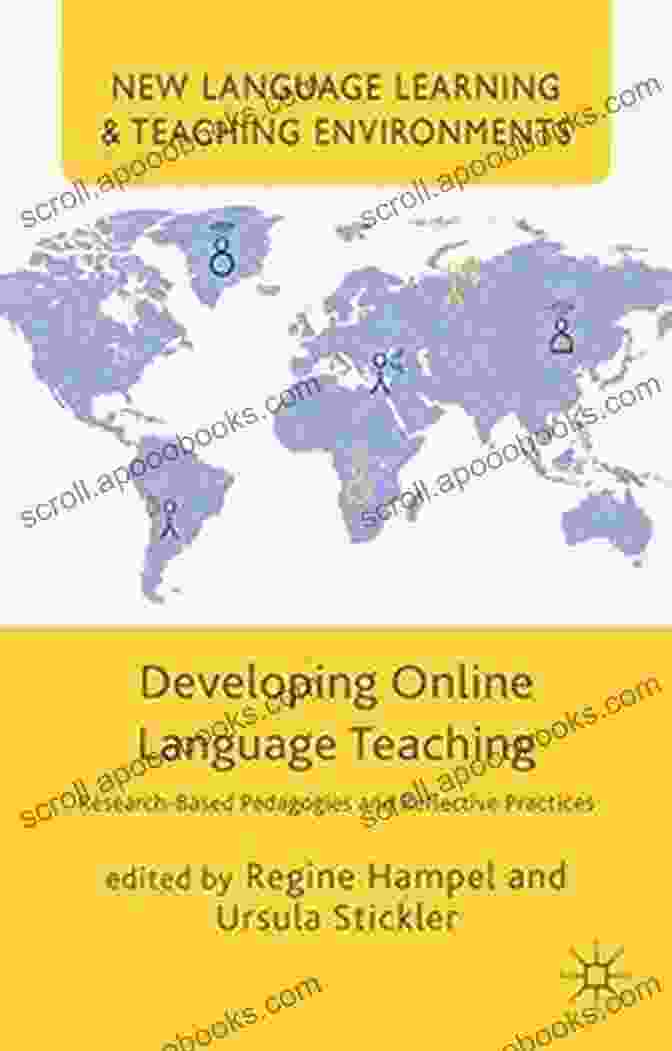
In the ever-evolving landscape of education, language learning stands as a pivotal discipline that empowers individuals to navigate an increasingly interconnected global community. To equip learners with the necessary skills and knowledge to thrive in this dynamic environment, educators must embrace a blend of research-based pedagogies and reflective practices. These approaches foster a vibrant and inclusive learning environment that nourishes students' language proficiency and critical thinking abilities.
Chapter 1: Grounding Language Learning in Research
This chapter delves into the foundational principles of research-based pedagogies. It explores the significance of empirical evidence, theory-driven instruction, and data-informed decision-making in shaping effective language learning experiences. By understanding the underpinnings of research-based approaches, educators can create learning environments that are tailored to the specific needs of their students.
5 out of 5
| Language | : | English |
| File size | : | 1626 KB |
| Text-to-Speech | : | Enabled |
| Screen Reader | : | Supported |
| Enhanced typesetting | : | Enabled |
| Word Wise | : | Enabled |
| Print length | : | 222 pages |
Chapter 2: Implementing Communicative Language Teaching
Communicative language teaching (CLT) is a well-established pedagogy that emphasizes the use of language for meaningful communication. This chapter provides a comprehensive overview of CLT principles, including the focus on authenticity, fluency, and learner autonomy. By adopting CLT strategies, educators can create engaging and immersive learning experiences that prioritize real-world language use.
Chapter 3: Integrating Technology in the Language Classroom
Technology has emerged as a powerful tool that can enhance language learning in numerous ways. This chapter examines the latest advancements in language learning technologies and provides practical guidance on how to effectively integrate them into the classroom. Educators will discover innovative apps, software, and online resources that can supplement traditional teaching methods and promote student engagement.
Chapter 4: Fostering Critical Thinking through Language Learning
Language learning goes beyond memorizing vocabulary and grammar rules. This chapter emphasizes the importance of fostering critical thinking skills through language instruction. By incorporating inquiry-based learning, problem-solving activities, and reflective assignments, educators can empower learners to analyze, evaluate, and synthesize information effectively.
Chapter 5: Embracing Learner Diversity
Every learner brings a unique set of strengths, challenges, and experiences to the language classroom. This chapter explores the principles of learner diversity and provides practical strategies for creating inclusive and supportive learning environments. By understanding and addressing the individual needs of students, educators can promote equitable access to language education.
Chapter 6: The Power of Reflection in Language Learning
Reflection is a crucial component of successful language learning. This chapter discusses the benefits of regular reflection and provides techniques that learners can use to monitor their progress, identify areas for improvement, and enhance their learning strategies. By encouraging students to reflect on their learning experiences, educators can foster self-awareness and promote lifelong learning.
Chapter 7: Assessing Language Proficiency and Progress
Assessment is an essential part of language learning, as it provides feedback to learners and educators alike. This chapter presents various assessment techniques, including formative and summative assessments, self-assessment, and portfolio-based assessment. By utilizing a range of assessment methods, educators can accurately gauge students' language proficiency and make informed decisions about future instruction.
Chapter 8: Cultivating Professional Development
Effective language educators are committed to continuous professional development. This chapter outlines strategies that educators can employ to enhance their knowledge and skills in the field. It explores opportunities for workshops, conferences, online courses, and collaborative research that can support educators in staying abreast of best practices and innovative teaching methodologies.
"Research Based Pedagogies and Reflective Practices in New Language Learning" is an indispensable resource for language educators seeking to revolutionize their teaching practices. By grounding instruction in research, implementing effective pedagogies, embracing technology, fostering critical thinking, and embracing learner diversity, educators can create transformative learning experiences that empower students to succeed in a globalized world. Through continuous reflection and professional development, educators can remain at the forefront of innovative language teaching practices and inspire a new generation of confident and capable language learners.
5 out of 5
| Language | : | English |
| File size | : | 1626 KB |
| Text-to-Speech | : | Enabled |
| Screen Reader | : | Supported |
| Enhanced typesetting | : | Enabled |
| Word Wise | : | Enabled |
| Print length | : | 222 pages |
Do you want to contribute by writing guest posts on this blog?
Please contact us and send us a resume of previous articles that you have written.
 Book
Book Novel
Novel Page
Page Chapter
Chapter Text
Text Story
Story Genre
Genre Reader
Reader Library
Library Paperback
Paperback E-book
E-book Magazine
Magazine Newspaper
Newspaper Paragraph
Paragraph Sentence
Sentence Bookmark
Bookmark Shelf
Shelf Glossary
Glossary Bibliography
Bibliography Foreword
Foreword Preface
Preface Synopsis
Synopsis Annotation
Annotation Footnote
Footnote Manuscript
Manuscript Scroll
Scroll Codex
Codex Tome
Tome Bestseller
Bestseller Classics
Classics Library card
Library card Narrative
Narrative Biography
Biography Autobiography
Autobiography Memoir
Memoir Reference
Reference Encyclopedia
Encyclopedia Lori Stade
Lori Stade Brian Green
Brian Green Bill Peterson
Bill Peterson David Spiller
David Spiller Bill Bernard
Bill Bernard Elanena White
Elanena White Fiona Gribbon
Fiona Gribbon Janet S Steinwedel
Janet S Steinwedel Betty Hafner
Betty Hafner Brian Christian
Brian Christian Jonathan Mayhew
Jonathan Mayhew Carol J Oja
Carol J Oja Bill Jones
Bill Jones Bob Grant
Bob Grant Umberto Eco
Umberto Eco L W Jacobs
L W Jacobs Levi Israel Ufferfilge
Levi Israel Ufferfilge Dannielle E Carr
Dannielle E Carr Neloy Khare
Neloy Khare Bill Yenne
Bill Yenne
Light bulbAdvertise smarter! Our strategic ad space ensures maximum exposure. Reserve your spot today!

 Marc FosterUnveiling the Enchanting Tale of "Madari's Bride for Christmas" - A Timeless...
Marc FosterUnveiling the Enchanting Tale of "Madari's Bride for Christmas" - A Timeless...
 Hamilton BellIf You Can Make It Through the Night: A Literary Masterpiece That Will Haunt...
Hamilton BellIf You Can Make It Through the Night: A Literary Masterpiece That Will Haunt...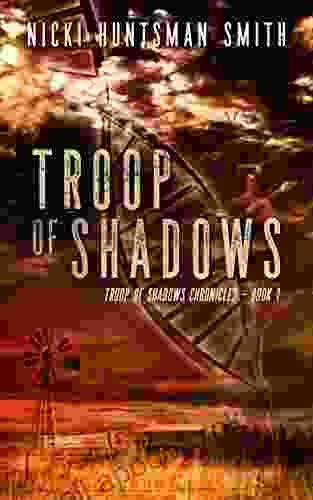
 Howard PowellPost Apocalyptic Disaster And Survival: Your Ultimate Guide to Thriving in...
Howard PowellPost Apocalyptic Disaster And Survival: Your Ultimate Guide to Thriving in...
 Dwayne MitchellUnveiling the Timeless Wisdom of Barff: A Comprehensive Guide to Carol Lynn...
Dwayne MitchellUnveiling the Timeless Wisdom of Barff: A Comprehensive Guide to Carol Lynn... Edison MitchellFollow ·14.8k
Edison MitchellFollow ·14.8k Joshua ReedFollow ·9.1k
Joshua ReedFollow ·9.1k Clinton ReedFollow ·2.4k
Clinton ReedFollow ·2.4k Leon FosterFollow ·18.7k
Leon FosterFollow ·18.7k Harvey HughesFollow ·15.6k
Harvey HughesFollow ·15.6k Jean BlairFollow ·14k
Jean BlairFollow ·14k Herbert CoxFollow ·9.5k
Herbert CoxFollow ·9.5k Rudyard KiplingFollow ·2.3k
Rudyard KiplingFollow ·2.3k
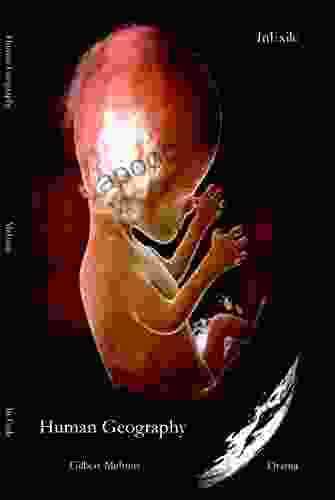
 Corey Green
Corey GreenHuman Geography: A Concise Introduction by Gilbert...
A Journey into the Dynamic Realm of...

 Julian Powell
Julian PowellTrain Your Mind to Make Great Art a Habit
Do you dream of...

 Matthew Ward
Matthew WardSmall Town Romance: Heart Compass
Escape to Willow Creek, Where...
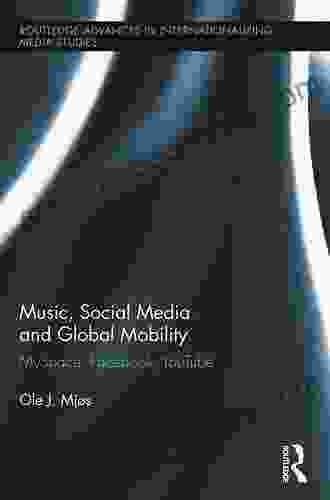
 Neil Parker
Neil ParkerMusic, Social Media, and Global Mobility: Exploring...
: The Convergence of Music, Media, and...
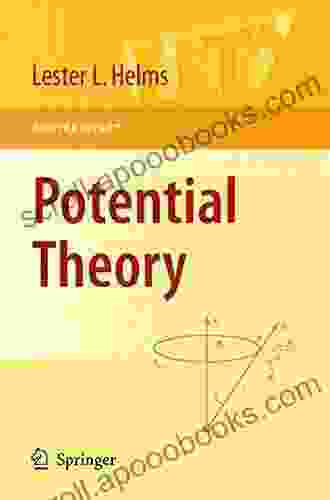
 Seth Hayes
Seth HayesUnlock the Potential of Potential Theory with Brooke...
Embark on an...
5 out of 5
| Language | : | English |
| File size | : | 1626 KB |
| Text-to-Speech | : | Enabled |
| Screen Reader | : | Supported |
| Enhanced typesetting | : | Enabled |
| Word Wise | : | Enabled |
| Print length | : | 222 pages |


